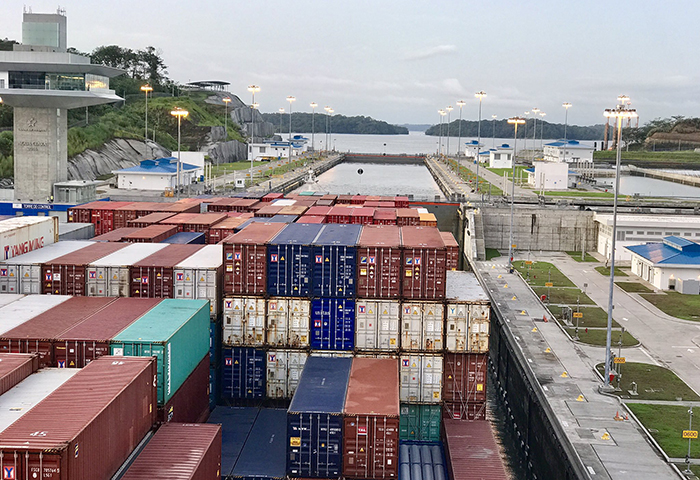
当前位置:新闻动态
South Korean shipping fears Trump action in Panama
来源:https://www.shippingazette.com/ 编辑:编辑部 发布:2025/02/20 08:45:21
SOUTH Korean shipping companies are bracing for potential disruptions as US President Donald Trump escalates tensions over the Panama Canal, reports Soeul's Chosun Ilbo.
As one of the world's most critical maritime trade routes, any disruption could drive transit costs sharply higher.
On February 10, a close associate of Mr Trump moderated the US State Department's claim that Panama had agreed to waive transit fees for US government vessels, reports Oslo-based Trade Winds.
However, the US State Department continues to insist that military and other government-owned ships should be exempt from tolls a position, a stance the Panama Canal Authority opposes.
Industry experts warn that if Washington succeeds in securing exemptions, the financial burden will likely shift to commercial vessels.
If US naval vessels are allowed to bypass transit fees, the Panama Canal Authority may raise tolls for other vessels to compensate for lost revenue.
According to the Panamanian Embassy in Cuba, the US has paid US$25.4 million (KRW36.7 billion over the past 26 years for the passage of its warships and submarines.
While alternative routes exist, they are largely impractical. The 80-kilometre Panama Canal serves as a vital link between the Atlantic and Pacific oceans, accommodating roughly 13,000 vessels annually.
A typical canal transit takes between eight and 10 hours, whereas bypassing it would require sailing around South America's southern tip, adding more than 15 days to a journey.
The 13,000 ships that pass through the Panama Canal each year account for five to six per cent of global trade. In 2023, the top users of the canal were the US (71.8 per cent), China (22.7 per cent), Japan (14.5 per cent), and South Korea (9.8 per cent).
Transit fees vary based on vessel size, cargo type, and volume, with containerships paying up to $500,000 per passage. Tolls can fluctuate sharply depending on demand, as seen last year when severe drought conditions forced authorities to cut daily transits from 31 to 25 ships, sending freight rates soaring.
At the time, strong global trade volumes allowed shipping firms to pass increased costs on to cargo owners. However, with trade expected to slow amid Trump's tariff war, carriers may find it more difficult to shift rising costs onto customers.

